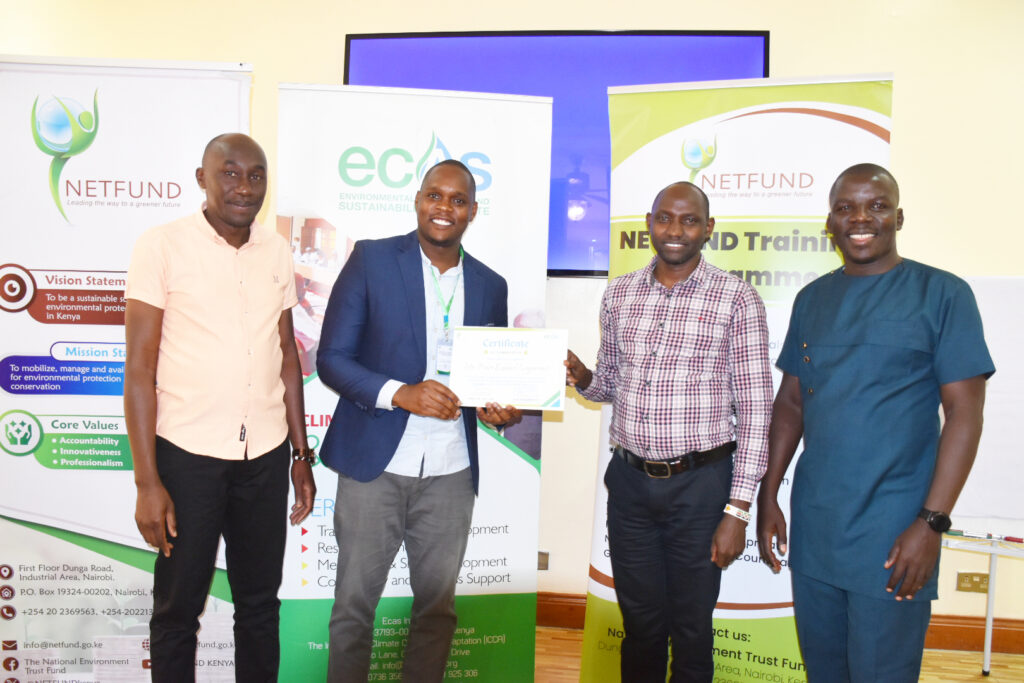
CONCEPT NOTE
INTERNATIONAL TRAINING ON HUMAN RIGHTS AND THE ENVIRONMENT
COURSE BACKGROUND
The relationship between human rights and the environment is increasingly recognized as critical in addressing global environmental challenges. The right to a clean, healthy, and sustainable environment is fundamental to the protection of human life, dignity, and well-being. Environmental degradation, climate change, and pollution disproportionately impact marginalized and vulnerable communities, making environmental justice an essential aspect of human rights advocacy.
This course, offered under the Environmental Capacities and Sustainability (ECAS) Institute, provides a comprehensive understanding of the legal, policy, and ethical dimensions of environmental protection and human rights. It explores how international treaties, national laws, and advocacy efforts shape environmental governance and promote justice. Participants will examine case studies on environmental conflicts, indigenous rights, corporate accountability, and climate justice to develop practical approaches to addressing environmental human rights violations.
Through expert insights, interactive discussions, and real-world case studies, this course equips participants with the tools to advocate for stronger environmental policies, legal frameworks, and community-driven solutions that uphold human rights.
COURSE OBJECTIVES OF THE TRAINING
By the end of this course, participants will be able to:
- Understand the connection between human rights and environmental protection and its relevance to sustainable development.
- Examine international and national legal frameworks that protect environmental rights.
- Analyze environmental injustices and their impact on vulnerable communities, including indigenous peoples, women, and marginalized groups.
- Explore the role of governments, corporations, and civil society in upholding environmental human rights.
- Study key legal cases and advocacy efforts related to environmental justice and climate litigation.
- Assess the impacts of pollution, deforestation, and climate change on human health and livelihoods.
- Develop strategies for promoting environmental justice through policy, legal actions, and community engagement.
- Gain practical skills in environmental advocacy, policy development, and stakeholder engagement.
WHAT YOU WILL LEARN
- Fundamentals of environmental human rights and legal principles.
- International treaties and agreements on environmental protection and human rights.
- Environmental justice issues and their social, economic, and health impacts.
- Legal and policy tools for addressing environmental human rights violations.
- Corporate responsibility and accountability in environmental governance.
- The role of civil society, advocacy groups, and grassroots movements.
- Climate justice and its implications for human rights.
- Case studies on landmark legal battles, community-led initiatives, and policy reforms.
DURATION AND PROGRAM
TARGET PARTICIPANTS
This course is designed for environmental advocates, legal professionals, policymakers, human rights defenders, civil society organizations, and corporate sustainability leaders seeking to understand the intersection of environmental governance and human rights. It is particularly relevant for government agencies, international organizations, NGOs, legal practitioners, and community leaders working on climate justice, corporate accountability, and environmental protection.
Additionally, researchers, academics, and students in law, environmental science, political science, and human rights studies will benefit from in-depth knowledge on legal frameworks, policy strategies, and real-world applications of environmental human rights.
TRAINING MODULES
| No | Module | Details | |
| 1. | The Link Between Human Rights and the Environment |
|
|
| 2. | International Environmental Law and Human Rights |
|
|
| 3. | Corporate Responsibility and Environmental Justice |
|
|
| 4. | Environmental Activism and Advocacy |
|
|
|
5.
|
Climate Change and Human Rights |
|
|
| 6. | Green Governance and Public Participation |
|
|
| 7. | Environmental Rights and Sustainable Development |
|
|
| 8. | Future of Human Rights and Environmental Justice |
|
|
TRAINING STYLE
This course adopts a practical and participatory learning approach, combining expert-led lectures, case study analysis, and interactive group discussions. Participants will engage in policy simulations, legal scenario exercises, and advocacy strategy development to apply their learning in real-world contexts. Workshops and stakeholder dialogues will facilitate collaboration, while guest lectures from human rights and environmental law experts will provide diverse perspectives. This hands-on approach ensures that participants develop critical thinking, legal analysis, and advocacy skills to advance environmental justice and human rights protections.
GENERAL NOTES
- Training manuals and additional reference materials are provided to the participants.
- Upon successful completion of this course, participants will be issued with a certificate.
- We can also do this as a tailor-made course to meet organization-wide needs. Contact us to find out more: info@ecasiafrica.org.
- Payment should be sent to our bank account before the start of training and proof of payment sent to: info@ecasiafrica.org.
ABOUT ECAS INSTITUTE
The ECAS Institute designs and delivers independent and targeted training, research, and consulting services. Our work focusses on climate change and resilience building, carbon markets, renewable energy, nature-based solution, biodiversity conservation, agriculture and food systems, We are located in Nairobi Kenya and work across the African region. We have implemented training and research assignments in Kenya, Tanzania, Uganda, South Sudan, Somalia, Malawi, Rwanda, Congo, and South Africa. Globally, we have supported our partners from the UK, Denmark, Italy, Sweden, Germany, and USA.
